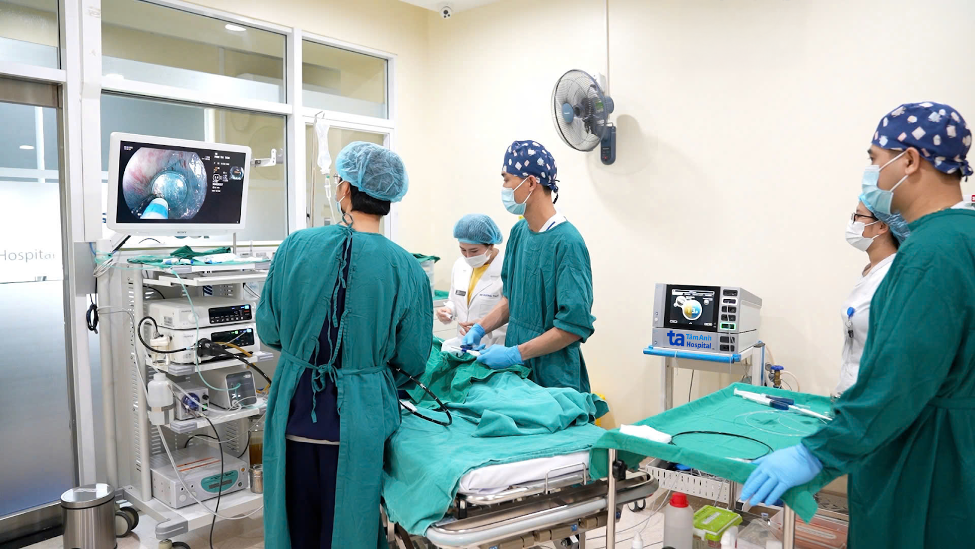Doctor Dao Tran Tien, from the Department of Gastroenterology at Tam Anh General Hospital in Hanoi, explained that only a scar remained at the site of Toan's previous rectal tumor removal. However, the pathology report revealed residual neuroendocrine tumor cells.
Neuroendocrine tumors (NETs) originate from neuroendocrine cells and are classified into different types (1, 2, and 3) based on their malignancy. Toan's tumor was type 1, considered benign with a low risk of metastasis.
Dr. Tien assessed that the remaining abnormal tissue could recur and progress to a higher-grade type or gastrointestinal cancer. The medical team opted for full-thickness resection device (FTRD) to remove the residual tumor instead of conventional polypectomy or submucosal injection followed by resection. These latter methods carry a higher risk of incomplete removal. FTRD allows for complete removal of the tumor, extending to the muscle and serosa layers of the rectum.
 |
The medical team removes the residual rectal tumor using FTRD. Photo: Tam Anh General Hospital |
The medical team removes the residual rectal tumor using FTRD. Photo: Tam Anh General Hospital
24 hours after the procedure, the patient resumed normal eating and activities without any complications. The histology confirmed complete tumor removal.
Neuroendocrine tumors can develop in any organ but are often located beneath the mucosal layer or within the gastrointestinal tract, in the esophagus, stomach, small intestine, colon, or rectum. In recent years, the detection rate of gastrointestinal NETs, particularly in the rectum and stomach, has increased due to advanced endoscopic techniques. Many small tumors, previously difficult to detect due to their submucosal location and minimal symptoms, are now being discovered early. This allows for thorough treatment, reduces the risk of progression, and limits the need for extensive surgery.
Individuals experiencing mild burning pain during bowel movements, rectal bleeding, tenesmus, a feeling of incomplete evacuation, or changes in bowel habits should seek medical attention promptly. Those with a family history of gastrointestinal tumors, cancers, or polyps should undergo endoscopic screening from the age of 30 or as soon as any unusual symptoms appear.
Ly Nguyen
*The patient's name has been changed.
| Readers can submit questions about digestive diseases here for doctors to answer. |












